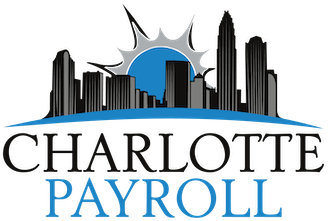Contractors provide temporary talent, but working with them involves particular obligations. This list of requirements and best practices will help your company stay on the right side of the law and the IRS so you can enjoy the flexibility of contractors and avoid problems.
Are They a Contractor or Employee?
If you own a business and hire or contract workers, you must determine whether they’re employees or independent contractors. The IRS provides common law rules to help you determine their status.
If you’re still unsure, you can ask them to make a ruling, but don’t guess. Misclassifying employees as contractors can lead to serious repercussions including paying employment taxes, stiff penalties, and legal action and fines under the Fair Labor Standards Act (FLSA).
Register Contractor With IRS
If you’re certain they’re a contractor, they’ll need to fill out a Form W-9 before they begin work. This is an Internal Revenue Service form used to gather a contractor’s name, address, and Taxpayer Identification Number so they can report their earnings at year-end. It also verifies they’re legally allowed to work in the U.S.
If your contractor is not a U.S. citizen or legal resident, use Form W8-BEN-E instead.
Review the form after completion and ensure they’ve indicated they’re exempt from withholding taxes, since contractors pay their own taxes on their self-employment earnings.
Schedule 1099-MISC Forms
The 1099-MISC form is the document you issue to show how much income the contractor earned while working for you.
In January, calculate the amount paid to your independent contractor over the previous year. If it was more than $600, you must complete a 1099-MISC form and submit it to the contractor by the end of January. If month end falls on a weekend, submit it no later than Monday.
Submit the paper 1099-MISC form to the IRS by mail before February 28, but send a Form 1096 with it. Alternatively, file your 1099s electronically through the FIRE system by March 1st.
Recordkeeping Best Practices
When you work with independent contractors you need to retain all the related paperwork for up to 7 years. This includes their written contract, invoices, your proof of payment(s), and other related documentation such as non-disclosure agreements. It is much simpler if you store and share information electronically rather than in paper file folders, especially if use many contractors or you use a few contractors frequently.
Always insist on an invoice before you issue payment and don’t accept billings for additional expenses. They’re considered a separate entity, so their expenses are their responsibility.
When Should a Contractor Become an Employee?
The primary reasons most employers use contractors are flexibility and cost effectiveness. Businessweek Magazine states independent contractors can save a company as much as 30 percent, because they do not have to pay payroll taxes, unemployment insurance, workers’ compensation and disability, and benefits such as sick and vacation days, pensions, and health insurance.
However, independent contractors typically charge more per hour since they pay their own expenses. They often work outside of your business too, so it can be harder for them to understand your corporate culture or integrate into your team.
Additionally, they work on a contract basis and may not be available when you need them or they might not have sufficient time to focus solely on your work. Plus, it takes time and effort to start, monitor, and complete contracts.
If you find you’re relying on a particular contractor continually for around 30 hours of work a week and anticipate the relationship will last, it may be easier and more efficient to bring them onboard as an employee. They’re already vetted and could slide into a permanent position easily without spending time and money on recruitment.
If all the paperwork and recordkeeping takes up too much of your valuable time, consider outsourcing your backend processes. Charlotte Payroll offers tailored solutions for small to medium-sized businesses in the Greater Charlotte area. Let us take the work out of IRS compliance so you can focus on your business. Contact us for a free consultation.






